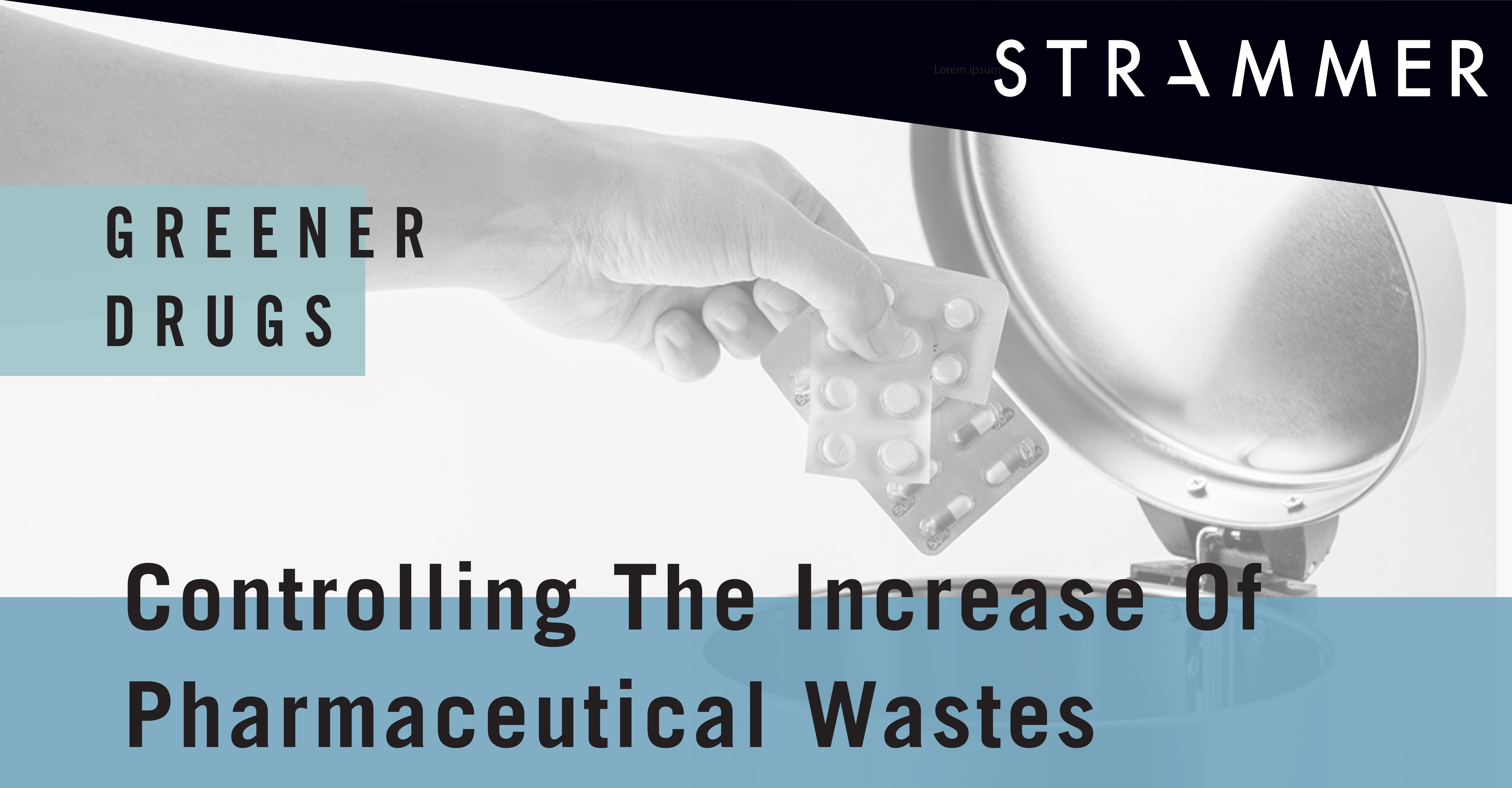The importance of Environmentally Friendly Medicines – Greener Drugs
With the development and easy access to medicine and drugs, we have been witnessing a phenomenon that has been gaining attention: the considerable increase of pharmaceutical waste. The followings can all be considered as such: therapeutic drugs, veterinary drugs, cosmetics, supplements, vitamins, utensils used in pharmacies and even hospitals (like gloves, bottles, tubes) etc. Those wastes can be introduced into the environment in the early stages of production but also when they are used or disposed. These different situations require distinct solutions.
Therefore, the pharmaceutical industry has a considerable environmental responsibility and an essential role when it comes to processing its waste. But it is mandatory that society is aware of their role in this matter as well, since we are equally producers of pharmaceutical waste. Consequently, recycling education is key to decrease waste.
To help people process their pharmaceutical waste, some local pharmacies started collecting and forwarding wastes to the proper places to be recycled. It is urgent to understand that drugs are not common waste, and obviously should not be treated like it.
Some analyses made on river waters showed they contain a small percentage of drugs. Even though it is not harmful, it is a way to alert people of the consequences of pharmaceutical waste and the importance of producing greener drugs i.e. products with a lower environmental risk. When we take a pill, there is a part of it that is used for the therapeutic effect, but another part is eliminated by the body and end up in the waters. These waters are treated on a treatment station, which sometimes cannot exclude all the substance, resulting in consequences for the environment, such as antibiotic-resistant bacteria, resistant fungi, fishes with difficulties in surviving, new resistant microorganisms etc.
A way to help us prevent pharmaceutical waste could include, for example, the rational use of medications. Drugs should be consumed in a conscious way, without exaggeration and following the instructions given by doctors.
Pharmaceutical companies have been trying to develop effective ways to progressively diminish their environmental footprint. Gradual changes are being made and some labs and scientists are even trying to switch to more environmentally friendly and sustainable chemicals.
It is crucial to discuss how we can have more eco-friendly medicines. One of the strategies is to apply a Benign-By-Design approach, which is typically implemented during the development phase of the drug. It is a possible way to develop or even redesign the medicine, so it gets eco-friendlier. Usually, scientists try to add or withdraw some key elements from the complex composition of the drugs so it can get more environmentally sustainable. The challenge is to develop drugs which will biodegrade easily. Some scientists also defend that it is essential to develop drugs which are absorbed by our body on a higher percentage. A potential downside of the situation is that, all these changes in the drug can cause some instability.
A new EU Regulation was introduced regarding veterinary medicinal products and an EU communication – the « Strategic Approach to Pharmaceuticals in the Environment », to show an evolution on the Pharmaceutical waste control. Thanks to the introduction of more innovative solutions and the sustainable development goals set for 2030 by the EU it is expected that pharmaceutical waste will decrease even more.
References:
- Environmentally benign by design, August 2017, ChemistryWorld
- Pharma and the environment: pollution continues despite public pressure, October 2018, Pharmaceutical Technology
- Recycling Mystery: Medication, December 2018, Eath911
- Types of Pollution: Have You Considered Pharmaceutical Waste?, February 2018, Technology Networks





